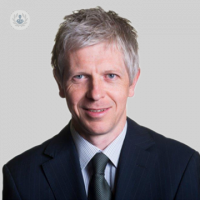What can an echocardiogram help diagnose?
Written in association with:In this article below, Dr Malcolm Burgess, a highly revered and esteemed Liverpool and Warrington-based consultant cardiologist, tells us what an echocardiogram typically detects, and details how exactly an echocardiogram is performed.

What are the most common medical conditions that an echocardiogram can help diagnose?
Patients typically have echocardiograms to look at valve problems, such as heart murmurs. Echocardiograms are also relevant when it comes to looking at the muscle function of the heart. This technique is also highly effective when looking at the sack that the heart sits in.
How does an echocardiogram differ from other imaging tests used to evaluate heart health?
The main difference is the speed of the test. It is a very routine technique and doesn’t involve radiation. Thus, it can be repeated over many years. CT scans, which involve radiation, cannot be performed routinely as the radiation involved will be damaging to the patient.
How is an echocardiogram performed, and what should patients expect during the test?
The test takes between 20 and 30 minutes, and involves lying on a couch on your left-hand side. An ultrasound probe is applied to the chest wall. A gel is then used to ensure good contact between the chest and the ultrasound probe.
Images from different angles of the heart are then acquired using different techniques of ultrasound to get a comprehensive assessment of the heart structure and function.
Are there any risks or side effects associated with echocardiograms?
It is an extremely safe technique, and has no associated risks.
If you are considering undergoing an echocardiogram, be sure to head on over and book an appointment with Dr Malcolm Burgess via his Top Doctors profile today.


